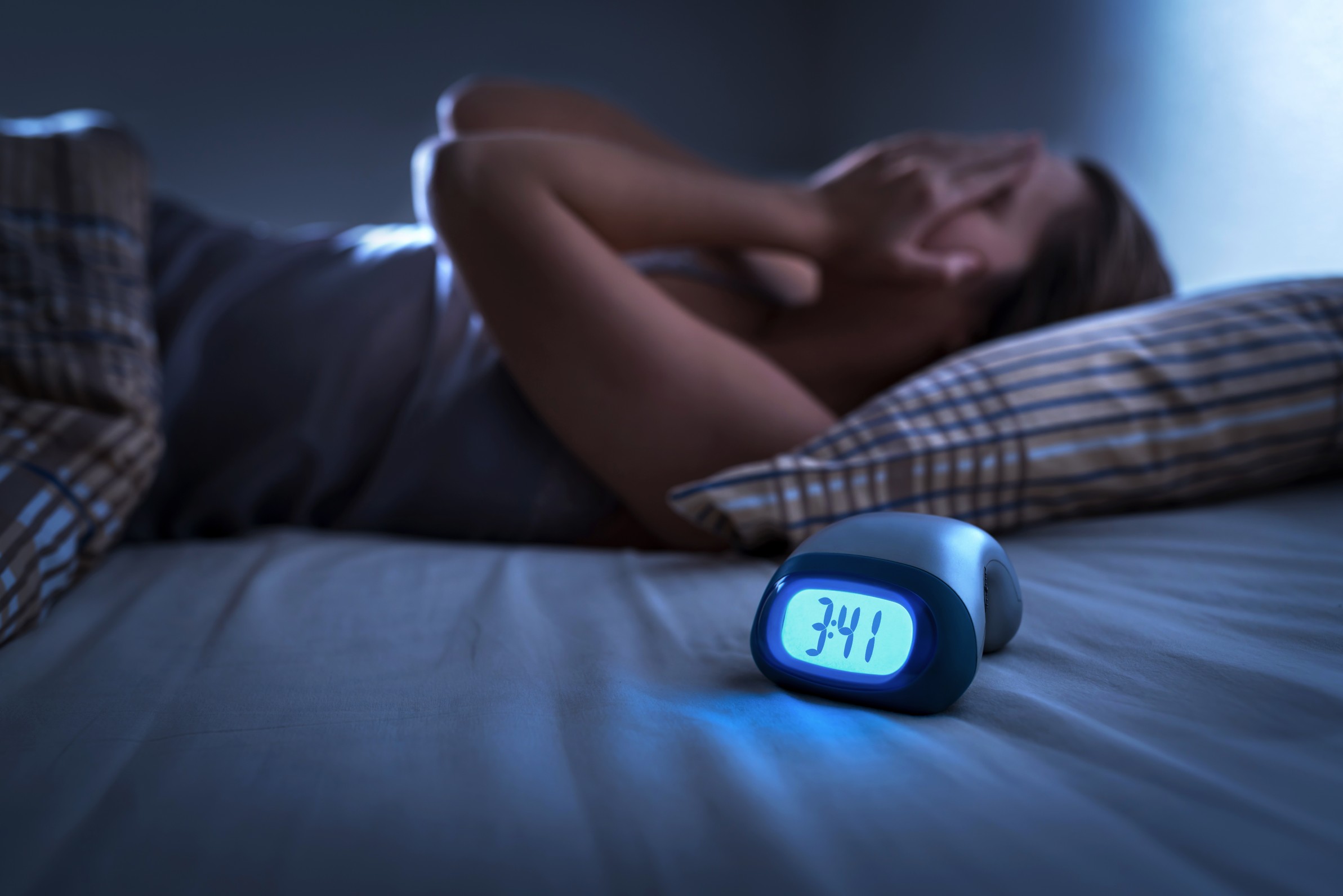How a Rainy Night and Beyoncé Kept DC Metro Running
August 9, 2023
In the captivating world of music and entertainment, artists wield a unique power that extends beyond the boundaries of the stage, leaving an indelible mark on the hearts and minds…

Sleep is essential to a healthy lifestyle. It is a necessary bodily function that enables us to recharge our bodies and minds and wake up refreshed and ready to face the day ahead. Unfortunately, many people have insomnia and other sleep disorders that prevent them from getting the needed sleep.
If you experiencing difficulties sleeping well, you’re in luck. Here are six expert tips on sleeping like a pro and ensuring you wake up feeling rested and refreshed.
Creating a relaxing sleep environment is one of the most important things you can do to improve your sleep quality. Your sleep environment significantly affects your ability to fall asleep and stay asleep throughout the night. Here are some tips for creating a relaxing sleep environment:
1. Temperature: Your bedroom temperature can significantly impact your sleep quality. Most people sleep best in a cool room between 60 and 67 degrees Fahrenheit. This temperature range can help you fall asleep faster and stay asleep longer.
2. Darkness: Darkness is essential for a good night’s sleep. Light can interfere with your circadian rhythm and make it harder to fall asleep. Use blackout curtains, blinds, or an eye mask to block out any light from outside. This will help you maintain a dark and comfortable sleep environment.
3. Quietness: Noise is another significant factor disrupting your sleep. To drown out any noise that might keep you awake at night, use earplugs or a white noise generator. If you live in a noisy area, consider using a soundproofing solution to reduce the noise level.
4. Electronic devices: Electronic devices such as smartphones, tablets, and laptops emit blue light, which can interfere with your sleep. This light can suppress melatonin production, a hormone that regulates sleep. Avoid using electronic devices at least an hour before bedtime to help your brain wind down and prepare for sleep.
The human body thrives on routine. Following a regular sleep schedule is crucial for maintaining a healthy sleep routine. Your body relies on a natural sleep-wake cycle, the circadian rhythm, to regulate your sleep pattern. Disrupting this cycle can cause difficulty falling asleep, staying asleep, and waking up in the morning. Here are some tips for following a regular sleep schedule:
1. Set a bedtime: Choose a time when you typically feel tired and aim to go to bed at that time every night. Consistency is key, so try to stick to this bedtime, even on weekends or days off.
2. Wake up at the same time: Set an alarm to wake up at the same time every day, even on weekends or days off. This will facilitate nighttime sleep by regulating your body’s circadian rhythm.
3. Avoid napping: While napping can benefit some people, it can disrupt your sleep schedule if you nap for too long or at the wrong time. Limit it to 20-30 minutes in the early afternoon if you must rest.
4. Be consistent: Staying to your sleep schedule as closely as possible, even on weekends or days off. This consistency will help regulate your body’s internal clock and make it easier to fall asleep at night and wake up in the morning.
5. Create a bedtime routine: It can signal your body that it’s time to sleep. This routine can include taking a warm bath, reading a book, or listening to relaxing music.
Exercise is essential for maintaining good health, but did you know it can also improve your sleep quality? Regular exercise can help alleviate stress and anxiety,two common culprits of sleep disruption. Here are some tips for incorporating exercise into your daily routine to promote healthy sleep:
1. Aim for at least 30 minutes daily: Exercise doesn’t have to be intense to be beneficial. Even moderate exercise, such as brisk walking, cycling, or swimming, can help improve your sleep quality.
2. Time your Exercise right: Try to finish your workout at least a few hours before bedtime. Exercise raises your body temperature and increases your heart rate, making it harder to fall asleep. If you exercise too close to bedtime, you may feel too energized to sleep.
3. Be consistent: Aim to exercise simultaneously every day. This consistency will help your body adjust to your new routine and make it easier to fall asleep at night.
4. Consider stretching: stretching can be an excellent way to reduce stress and promote relaxation. They can also be done in the evening, making them a great option for those who prefer to exercise later in the day.
5. Don’t overdo it: While exercise can benefit sleep, overdoing it can have the opposite effect. Intense exercise can increase stress levels and make it harder to fall asleep. Listen to your body and adjust your exercise routine as needed.
Caffeine or alcohol usage could be the cause of your inability to sleep soundly. This is why:
Caffeine: Caffeine is a stimulant that can increase alertness and delay sleep onset. It can stay in your system for several hours, so it’s important to be mindful of your daily caffeine intake. Drinking caffeine in the evening can make it harder to fall asleep at night, so limiting your consumption to one or two cups of coffee or tea in the morning is best.
Alcohol: While alcohol may make you sleepy, it can disrupt your sleep cycle. It can cause you to wake up frequently during the night, reduce the time you spend in deep sleep, and leave you groggy in the morning. If you drink alcohol, it’s best to do so in moderation and avoid drinking close to bedtime.
Limiting your caffeine and alcohol consumption can help you sleep better and wake up feeling refreshed. Be mindful of your intake and adjust to promote healthy sleep habits.

Stress and anxiety can interfere with your sleep quality by making it difficult to fall asleep and stay asleep. To manage stress and anxiety, try relaxation techniques. Here are some common relaxation techniques that can help promote healthy sleep:
1. Deep Breathing Exercises: Deep breathing exercises are a simple and effective way to relax your body and mind. To practice deep breathing, sit or lie in a comfortable position and take slow, deep breaths through your nose and out through your mouth. Focus on your breath and try to release any tension in your body with each exhale.
2. Progressive Muscle Relaxation: Progressive muscle relaxation is a technique that involves tensing and relaxing different muscle groups in your body. To practice this technique, start by tensing the muscles in your feet and then gradually work your way up to your head. Hold the tension briefly before releasing it and relaxing the muscle group.
3. Meditation involves focusing on a particular object, sound or thought. It can help you to quiet your mind and reduce stress and anxiety. There are numerous ways of meditation, such as mindfulness and guided meditation.
4. Yoga is a physical practice combining movement, breath, and meditation. It can help to reduce stress and promote relaxation, making it a great option for improving sleep quality. Certain yoga poses, such as forward folds and gentle twists, are particularly helpful for relaxing the body and preparing for sleep.
The quality of your mattress and pillow can have a significant impact on the quality of your sleep. A comfortable mattress and pillow can provide the necessary support for your body, ensuring that you can sleep soundly throughout the night. Here are some tips for investing in a comfortable mattress and pillow:
1. Choose the Right Mattress: When choosing a mattress, consider factors such as firmness, support, and materials. A mattress that is too soft or firm can cause discomfort and disrupt your sleep, so it’s important to choose a mattress that provides the right support for your body. Additionally, consider the materials used in the mattress, as this can impact factors such as durability and breathability.
2. Consider Your Sleeping Position: Your sleeping position can impact the type of mattress and pillow that is best for you. For example, if you sleep on your side, you may need a softer mattress and a thicker pillow to support your neck. A firmer mattress and a thinner pillow may be more comfortable if you sleep on your stomach.
3. Test Out Different Options: When shopping for a mattress and pillow, take the time to test out different options to find the one that is most comfortable for you. Lie down on the mattress and pillow for several minutes to see how it feels and whether it provides adequate support for your body.
4. Replace Your Mattress and Pillow Regularly: Even the best-quality mattress and pillow can wear out over time, losing their support and comfort. It’s important to replace your mattress and pillow every seven to ten years to ensure you get the best possible sleep.
A restful night’s sleep is essential for maintaining a healthy lifestyle. The six expert tips discussed in this article are simple yet effective ways to improve your sleep quality and ensure you wake up refreshed and ready to take on the day. Creating a relaxing sleep environment, following a regular sleep schedule, exercising regularly, and limiting caffeine and alcohol consumption are all important factors to consider. Implementing these tips into your daily routine can improve your sleep quality and overall health, leading to a more productive and enjoyable day. So, don’t hesitate to make some changes and prioritize a good night’s sleep for a better quality of life.